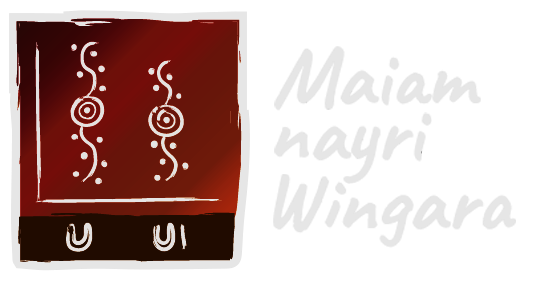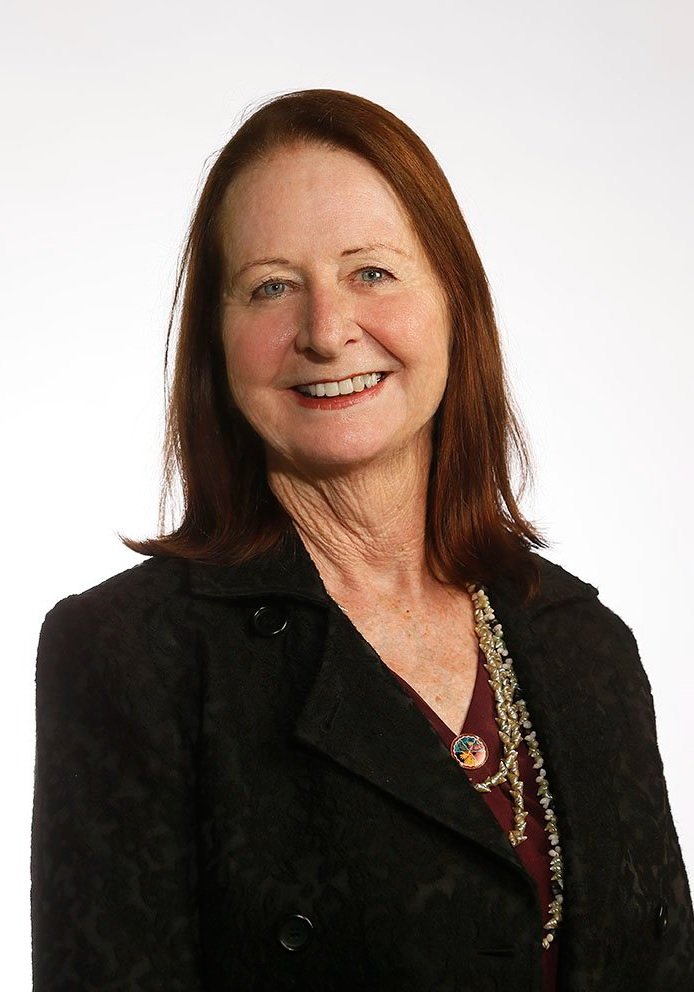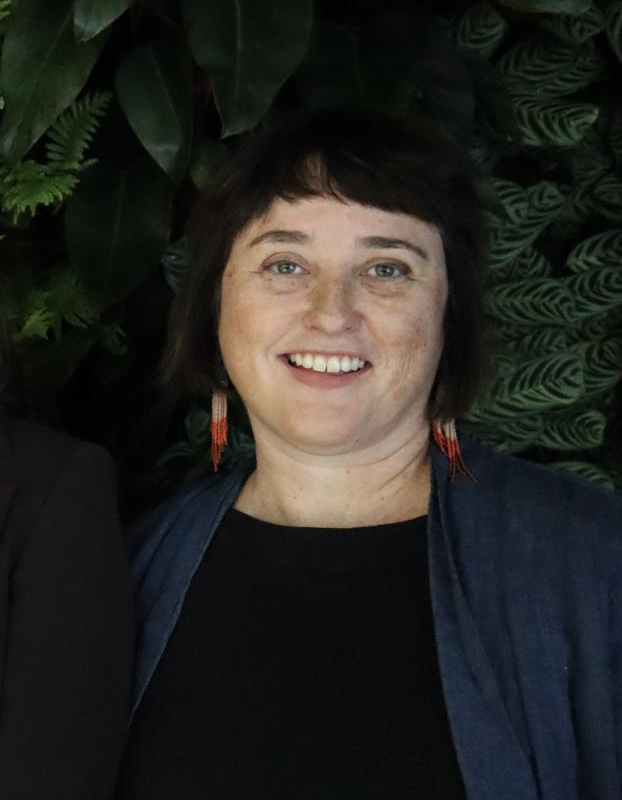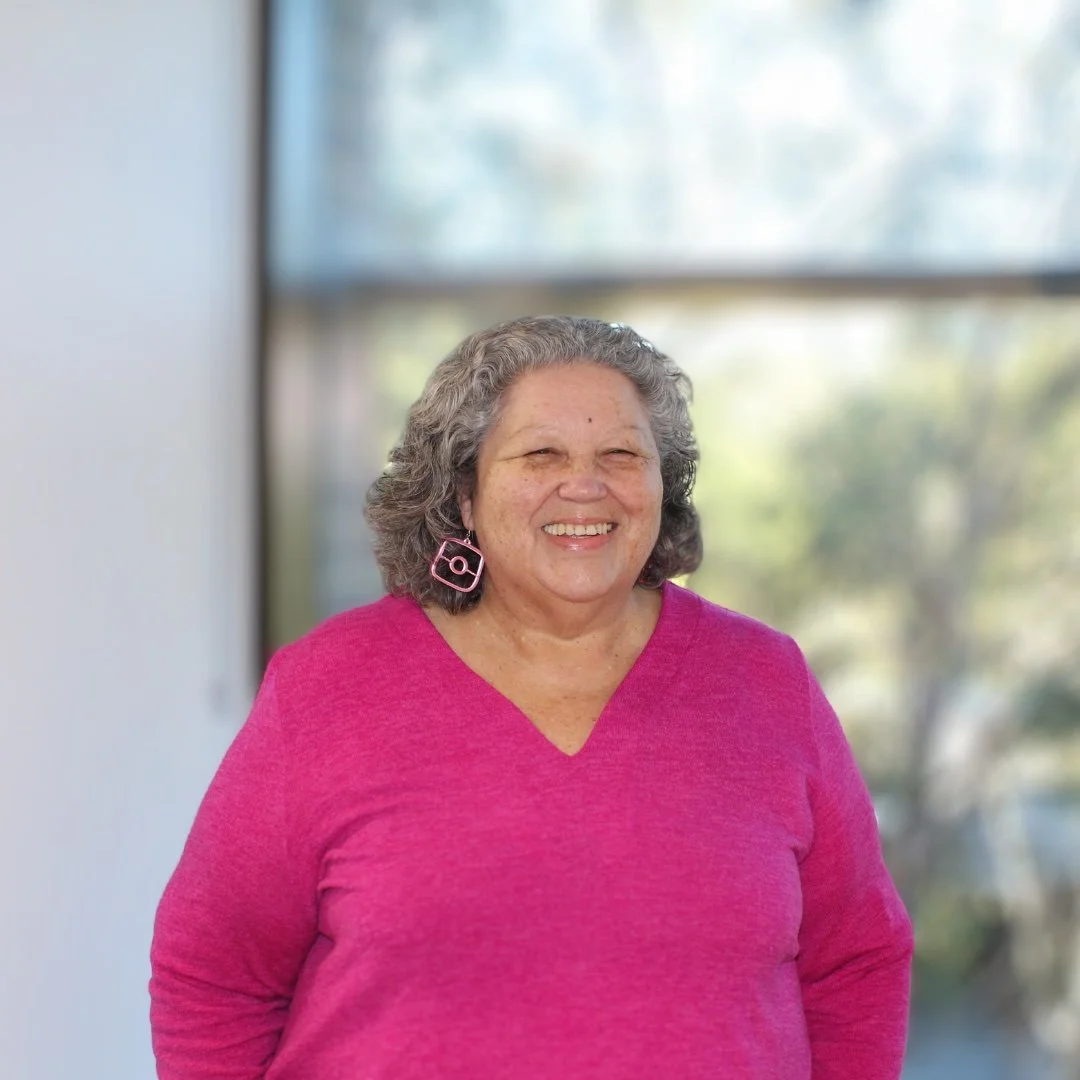MAIAM NAYRI WINGARA IS OVERSEEN BY A CORE WORKING GROUP. our 2025 executive Members are:
Cassandra Sedran-Price
Dr Cassandra Sedran-Price is a proud Muruwari/Gangugari woman and is an Adjunct Research Fellow at the School of Social Sciences, University of Tasmania. Cassandra’s research focuses on operationalising Indigenous Data Sovereignty and Indigenous Data Governance within organisations.
Cassandra has developed and implemented Indigenous Data Governance policies, structures, and processes to support Indigenous Data Sovereignty within Government, Non-Government Agency settings and with Traditional Owners.
Cassandra has worked across multiple disciplines, including climate ecology, natural resource management, Aboriginal and Torres Strait Islander health, national Aboriginal and Torres Strait Islander data development. Cassandra has extensive experience in strategic research and policy development and has held executive and advisory roles across Non-Government and Government Agencies.
Gawaian Bodkin Andrews
Gawaian Bodkin-Andrews, of the D'harawal nation, is a researcher and lecturer whose outputs are increasingly encapsulating and promoting Aboriginal Australian standpoints and perspectives across a diversity of disciplines (most notably education and psychology). Gawaian has managed and led numerous research grants investigating a diversity of topics including mental health, mentoring, identity, Traditional Knowledges, education, and racism.
His projects have led to the development of a strong foundation in developing robust and diverse research designs, with an increasing dedication to Indigenous Research Methodologies. From this framework, he is continually developing his experience in applying quantitative and qualitative methods within his scholarly work.
His research has also attracted a number of national and international awards (including the AARE Betty-Watts Indigenous Researcher award), and he has produced the Healing the Wounds of the Heart documentary focusing on developing resiliency against racism (https://www.youtube.com/watch?v=H0RosRz_HtQ) for Aboriginal youth.
Jacob Prehn
Dr. Jacob Prehn is a proud Worimi man born and raised on Palawa Country. He is the inaugural Associate Dean Indigenous for the College of Arts, Law, and Education (CALE) and a Senior Lecturer – Indigenous Fellow in Social Work at the University of Tasmania. He is an award-winning Early Career Researcher with over $1.3M in competitive research grants.
Jacob’s research goals are to empower Aboriginal and Torres Strait Islander people to achieve their hopes, dreams, and aspirations. His publications include quantitative and qualitative data, and he explores a range of topics including Indigenous data sovereignty, health and wellbeing, education, critical sociology and social work, and strengths-based approaches
Maggie Walter
Maggie Walter (PhD; FASSA) is Palawa, a member of the Briggs Aboriginal family in Lutruwita/Tasmania.
Maggie is a Distinguished Professor of Sociology Emerita at the University of Tasmania and was appointed a Commissioner with the Yoorrook Justice Commission in 2021.
Maggie is a founding member of the Indigenous Data Sovereignty group in Australia (Maiam Nayri Wingara) and an executive member of the Global Indigenous Data Alliance (GIDA).
Ray Lovett
Professor Ray Lovett is an Aboriginal (Wongaibon/ Ngiyampaa) man from western NSW. Ray is a social epidemiologist with extensive experience in health research, public health policy development and evaluation, and is the Mayi Kuwayu Study Director in the National Centre for Aboriginal and Torres Strait Islander Wellbeing Research at the Australian National University.
Prior to his research career, Ray was a health policy advisor in the Aboriginal health workforce. He has a clinical background as a registered nurse and Aboriginal health worker. Ray is recognised nationally for his work in Aboriginal and Torres Strait Islander primary health care research. His work includes integrating culture and Aboriginal and Torres Strait Islander research ethics.
Rose Barrowcliffe
Dr. Rose Barrowcliffe is a Butchulla postdoctoral research fellow in the Department of Critical Indigenous Studies at Macquarie University, a member of the Global Centre for Indigenous Futures and an ENRICH Fellow. Rose was the inaugural First Nations Archives Advisor to the Queensland State Archives. Rose's work and research examines the representation of Indigenous peoples and the enactment of Indigenous rights in collecting institutions.
KIRSTEN THORPE
A/Prof Kirsten Thorpe (Worimi, Port Stephens) leads the Indigenous Archives and Data Stewardship Hub at the Jumbunna Institute for Indigenous Education and Research, University of Technology Sydney. Her current research examines the intersection of Indigenous Data Sovereignty in an archival context.
Prior to academia, Kirsten gained extensive experience in major collecting institutions across libraries and archives, supporting Indigenous engagement and priorities. Kirsten holds a PhD (Library and Archival Studies), Master of Information Management and Systems (Professional), Post-Graduate Diploma in Science (Archives and Records), Bachelor of Social Science (Sociology) and Diploma in Aboriginal Studies. Kirsten is an invited member of the International Council on Archives Expert Group on Indigenous Matters, a co-founder of the Indigenous Archives Collective, and an elected member of the International Federation of Libraries (IFLA) Indigenous Matters Section (2023-2027). In 2023, Kirsten was appointed to the National Archives of Australia Advisory Council for a three-year term.
Bronwyyn Carlson
Distinguished Professor Bronwyn Carlson is the Head of the Department of Critical Indigenous Studies. She has been awarded three consecutive Australian Research Council (ARC) grants focused on Aboriginal and Torres Strait Islander engagements with digital technologies including social media. She is considered the preeminent researcher in the field of Indigenous digital life. Bronwyn has an impressive track record and comprehensive list of scholarly publications including as the author of the first scholarly journal article that focuses on Aboriginal and Torres Strait Islander peoples and digital technologies (Lumby, 2010) and the co-author of the only scholarly book that focuses exclusively on Aboriginal and Torres Strait Islander people’s digital lives (Carlson & Frazer, 2021). She has co-edited and contributed to two special issues on the topic; the Australasian Journal of Information Systems (2017) on “Indigenous Activism on Social Media’ and Media International Australia (2018) on “Indigenous Innovation on Social Media” and an edited volume with Rutgers University Press (Carlson & Berglund, 2021) "Indigenous People Rise Up: The Global Ascendancy of Social Media Activism". She is also the founding and managing editor of the Journal of Global Indigeneity and the Director of The Centre for Global Indigenous Futures. In 2020 she was elected as a Fellow of the Australian Academy of the Humanities for her research on Indigenous peoples and digital technologies.









